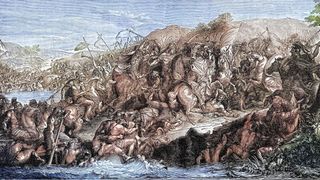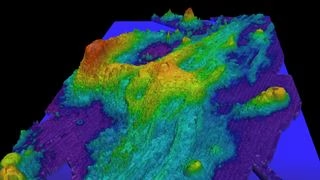It’s a chilly start to 2025 for many as an expanding polar vortex is expected to bring dangerously low temperatures to the eastern half of the U.S. While it’s too early for precise measurements, forecasters predict that this month could be the coldest January in the U.S. for more than a decade.
But weather forecasts are not the only 2025 predictions in this week’s science news…
West Coast volcano about to blow
Axial is an underwater volcano located 300 miles (480 kilometers) west of Cannon Beach, Oregon. The seamount erupts fairly regularly and is relatively close to the shore, making it a perfect site for studying volcanic activity.
Predicting when a volcano is going to erupt is a difficult feat — and one that usually can only be done a couple of days in advance. However, volcanologists hope that by studying Axial, they may be able to gain new insights into how a volcano’s surface activity reflects the movement of magma and fluids underneath, which could help them improve longer-term eruption forecasting.
Discover more planet earth news
—What’s the difference between an active, dormant and extinct volcano?
—Earth news quiz 2024: Test yourself on this year’s biggest stories about our planet
Life’s Little Mysteries

Neuroscience has advanced exponentially in recent decades, and we now have a pretty good idea of the physical locations where memories are stored in the brain. But could we ever isolate specific memories and program them into machine learning algorithms to replay those special moments?
Legendary ancient battleground uncovered

The Battle of the Granicus in 334 B.C. was one of the most significant turning points in the rise of the famous Macedonian king, Alexander the Great. However, the site of the battlefield has been somewhat of a mystery — until now.
Archaeologists have been sniffing around the area in northwest Turkey since the 19th century, and human skeletons and weapons have been found at the site. However, thanks to modern techniques, researchers have reconstructed what the area might have looked like in Alexander’s time, to further…
Click Here to Read the Full Original Article at Latest from Livescience…

